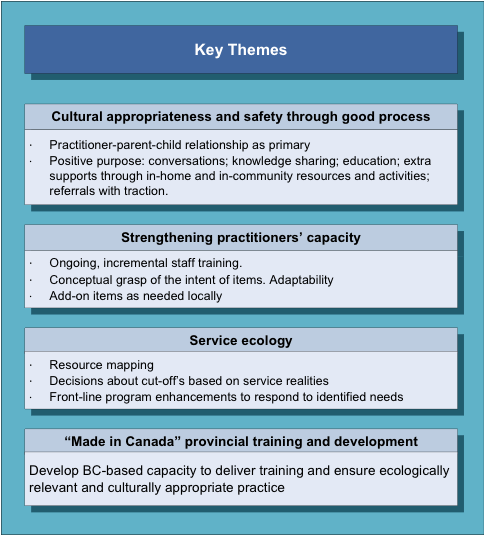For nearly half a century, there has been widespread concern about the cultural bias built into 'mainstream' tests and measures for assessing children's abilities and identifying children as being 'at risk' or having difficulties/disorders. Nearly all tools that are used by professionals have been developed by Euro-Western trained scientists and educators who have tested their approaches and gathered 'normative' information with relatively privileged, urban children. Are the contents of these tools meaningful to children who are not relatively privileged or not from a Euro-Western culture of origin? Should different tools be developed, or normative data for scoring tests be used instead? Could standardized tools be adapted to make them more culturally meaningful and sensitive to differences in children's experiences in different contexts?
What are developmental milestones for Indigenous children? Early Childhood Development program managers in First Nations, Métis and Inuit communities, in provincial and national offices of Aboriginal Head Start, and at Statistics Canada have asked questions that recognize the cultural nature of development such as:

Social Sciences and Humanities Research Council of Canada: Major Collaborative Research Initiatives
First Nations Inuit Health Branch, Maternal & Child Health Branch, Health Canada